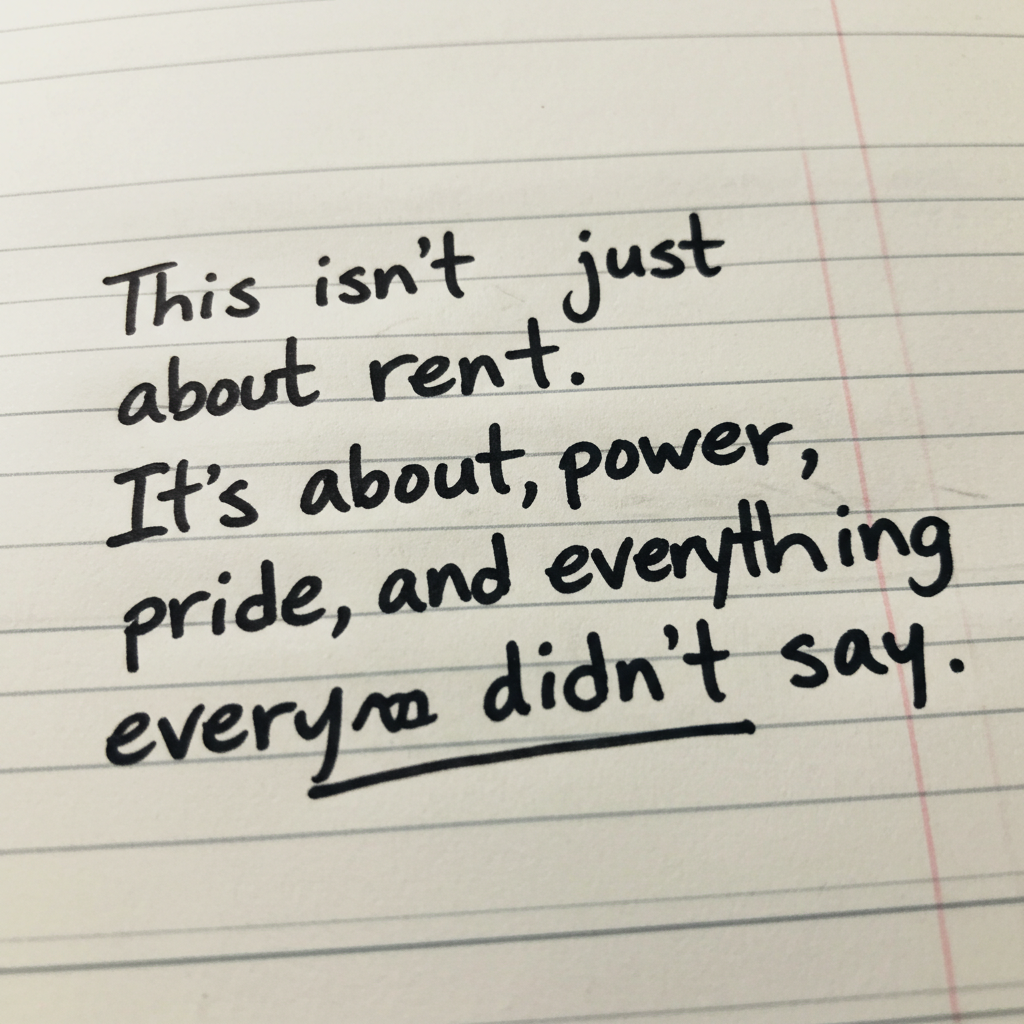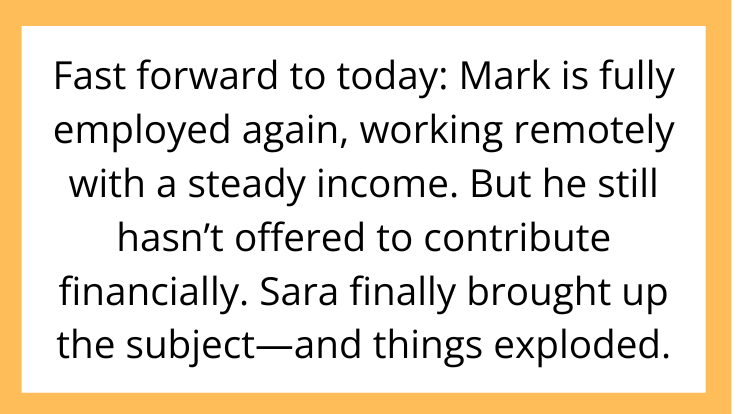AITAH for Asking My Boyfriend to Pay Rent After Living in My Apartment for Free for a Year?
When love and money mix, things can get complicated fast. In today’s AITAH scenario, we explore a story that many people in long-term relationships can relate to: what happens when one partner starts to feel like they’re being taken advantage of financially?
Is asking for rent selfish—or just setting a fair boundary?
The Situation: One Year, Zero Rent

A 27-year-old woman—let’s call her Sara—shared her story on Reddit’s r/AITAH, and the internet had a lot to say.
Sara owns a one-bedroom apartment in a major city. She bought it with her own money, has been paying off the mortgage by herself, and manages all the bills. About a year ago, her boyfriend, Mark (30), moved in. At the time, things were casual and exciting. Mark had recently been laid off, and Sara, wanting to be supportive, told him not to worry about paying rent “for now.”
Fast forward to today: Mark is fully employed again, working remotely with a steady income. But he still hasn’t offered to contribute financially. Sara finally brought up the subject—and things exploded.
The Conflict: “You Said I Didn’t Have To Pay”

When Sara asked Mark if he could start contributing to rent and bills, he pushed back hard. His argument? She owns the apartment, so she’s not paying rent to a landlord. “Why should I pay you,” he asked, “when you’re just pocketing the money?”
Sara was stunned. She clarified that she still pays a mortgage, utilities, and maintenance fees—and she’s not asking for the full rent amount, just a fair share. But Mark accused her of treating him like a tenant instead of a partner.
He said it made him feel “used” and “like a paycheck.” That’s when Sara turned to Reddit: Am I the a**hole for finally asking my boyfriend to pay rent?
The Debate: Fairness vs. Feelings

Sara’s Side: Equity and Responsibility
From Sara’s point of view, this is about fairness. Mark has been living rent-free for a year. Now that he’s back on his feet financially, it makes sense for him to share the burden. Living in a space someone else owns doesn’t make you exempt from contributing—it just changes how you contribute.
This isn’t about profit; it’s about partnership. If both people live in the space, both should support it.
Mark’s Side: Partners Don’t Charge Each Other
To Mark, the request felt transactional. He likely envisioned their relationship as a team where money is shared freely and not tracked line-by-line. He may also feel uncomfortable “paying rent” to his girlfriend, viewing it more like giving her money than paying a landlord.
There could also be pride at play—perhaps Mark resents that Sara owns the home and he doesn’t, and the rent conversation triggered insecurity.
What Reddit Said: Team Sara (Mostly)

The AITAH community leaned heavily in Sara’s favor.
“Living with someone doesn’t mean you get a free ride,” one top commenter said. “If he’s not contributing, he’s not a partner—he’s a dependent.”
Others pointed out that Sara isn’t trying to profit. She’s trying to create a fair balance in a long-term relationship. Many users even shared personal stories where they paid rent to a partner who owned the property—because that’s what adults in respectful relationships do.
However, some users suggested that the conversation could’ve been framed differently. Instead of using the word “rent,” framing it as “shared expenses” might have softened the blow.
The Deeper Issue: Money, Power, and Communication

This story isn’t just about rent. It’s about respect, responsibility, and unspoken expectations.
When couples live together, it’s vital to talk about finances early and often. Who pays what? How do we handle shared costs? Is ownership a factor? These questions, if ignored, lead to resentment and power imbalances.
Sara’s mistake, if any, may have been letting the “free ride” go on for too long. Mark, on the other hand, may be struggling with the idea that financial equality doesn’t always mean identical contributions.
A Possible Compromise: Shared Contribution, Shared Respect

This relationship doesn’t have to crash and burn. If Mark is willing to listen—and if Sara is open to a collaborative tone—they could find a solution that works for both.
Some fair middle-ground options:
-
Mark pays half of utilities, groceries, and a portion of the mortgage that reflects market rent.
-
They agree on a monthly amount that goes into a joint household fund.
-
They revisit financial expectations every 6 months.
Final Verdict: Not the Villain—But the Timing Matters

Sara isn’t the villain for asking for rent. She’s drawing a boundary and advocating for financial balance in a long-term partnership.
But how and when you introduce that boundary matters. Communication is key. Bringing up money in relationships can feel awkward—but avoiding it can be far worse.



